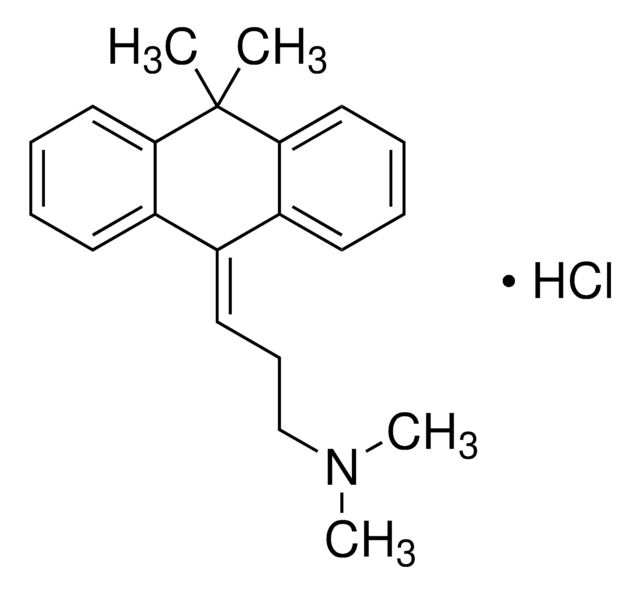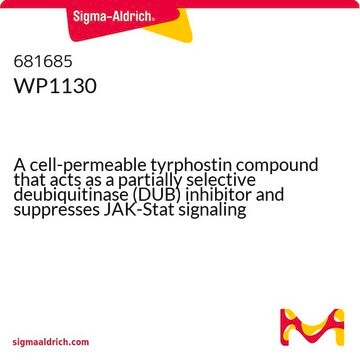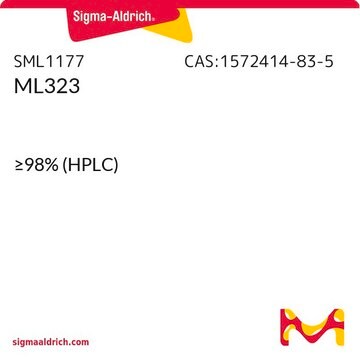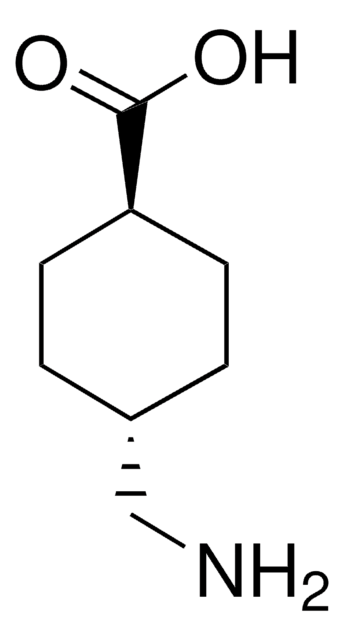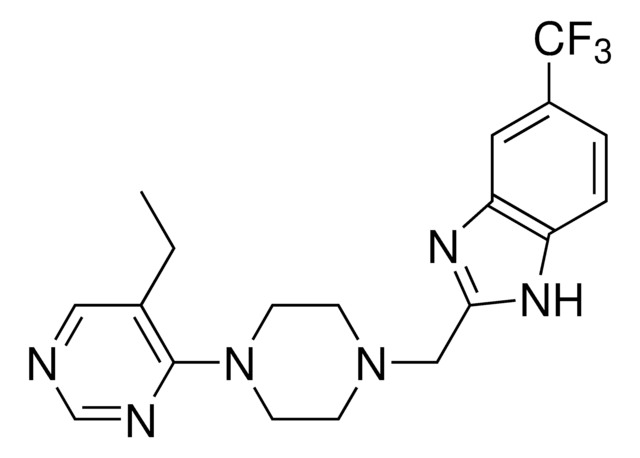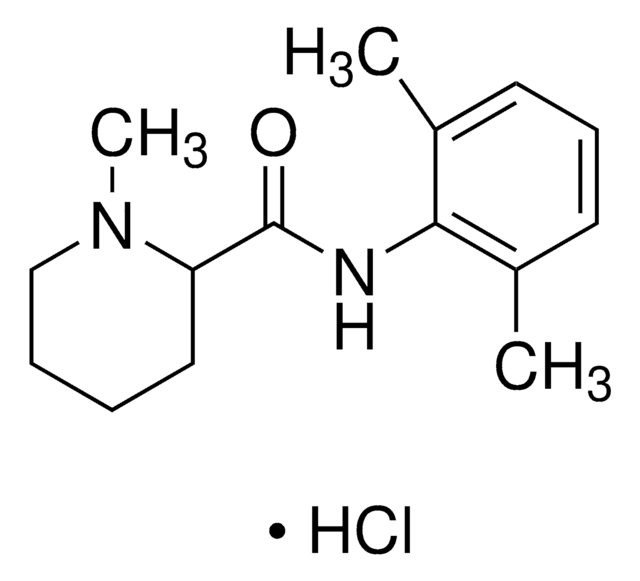5.31131
USP1-UAF1 Inhibitor, ML323
Synonym(s):
USP1-UAF1 Inhibitor, ML323, N-(4-(1H-1,2,3-Triazol-1-yl)benzyl)-2-(2-isopropylphenyl)-5-methylpyrimidin-4-amine, USP1–UAF1 Deubiquitinase complex Inhibitor, ML 323
About This Item
Recommended Products
Assay
≥98% (HPLC)
Quality Level
form
powder
manufacturer/tradename
Calbiochem®
storage condition
OK to freeze
protect from light
color
off-white
solubility
DMSO: 100 mg/mL
storage temp.
2-8°C
SMILES string
CC1=CN=C(N=C1NCC2=CC=C(C=C2)N3C=CN=N3)C4=CC=CC=C4C(C)C
InChI
1S/C23H24N6/c1-16(2)20-6-4-5-7-21(20)23-24-14-17(3)22(27-23)25-15-18-8-10-19(11-9-18)29-13-12-26-28-29/h4-14,16H,15H2,1-3H3,(H,24,25,27)
InChI key
VUIRVWPJNKZOSS-UHFFFAOYSA-N
General description
Please note that the molecular weight for this compound is batch-specific due to variable water content.
Biochem/physiol Actions
USP1-UAF1 deubiquitinase (DUBs) complex
Packaging
Warning
Reconstitution
Other Notes
Liang, Q., et al. 2014. Nat Chem Biol.10, 298.
Legal Information
Storage Class Code
11 - Combustible Solids
WGK
WGK 3
Flash Point(F)
Not applicable
Flash Point(C)
Not applicable
Certificates of Analysis (COA)
Search for Certificates of Analysis (COA) by entering the products Lot/Batch Number. Lot and Batch Numbers can be found on a product’s label following the words ‘Lot’ or ‘Batch’.
Already Own This Product?
Find documentation for the products that you have recently purchased in the Document Library.
Related Content
Select different protease inhibitor types based on your needs to prevent protein degradation during isolation and characterization and safeguard proteins in sample prep.
Select different protease inhibitor types based on your needs to prevent protein degradation during isolation and characterization and safeguard proteins in sample prep.
Select different protease inhibitor types based on your needs to prevent protein degradation during isolation and characterization and safeguard proteins in sample prep.
Select different protease inhibitor types based on your needs to prevent protein degradation during isolation and characterization and safeguard proteins in sample prep.
Our team of scientists has experience in all areas of research including Life Science, Material Science, Chemical Synthesis, Chromatography, Analytical and many others.
Contact Technical Service